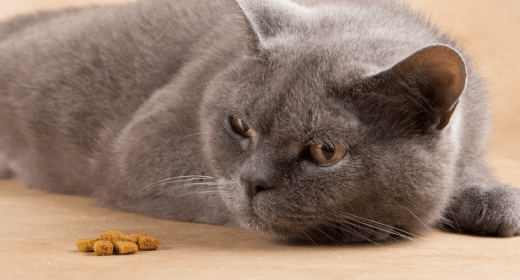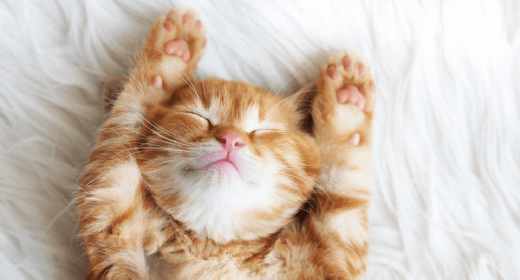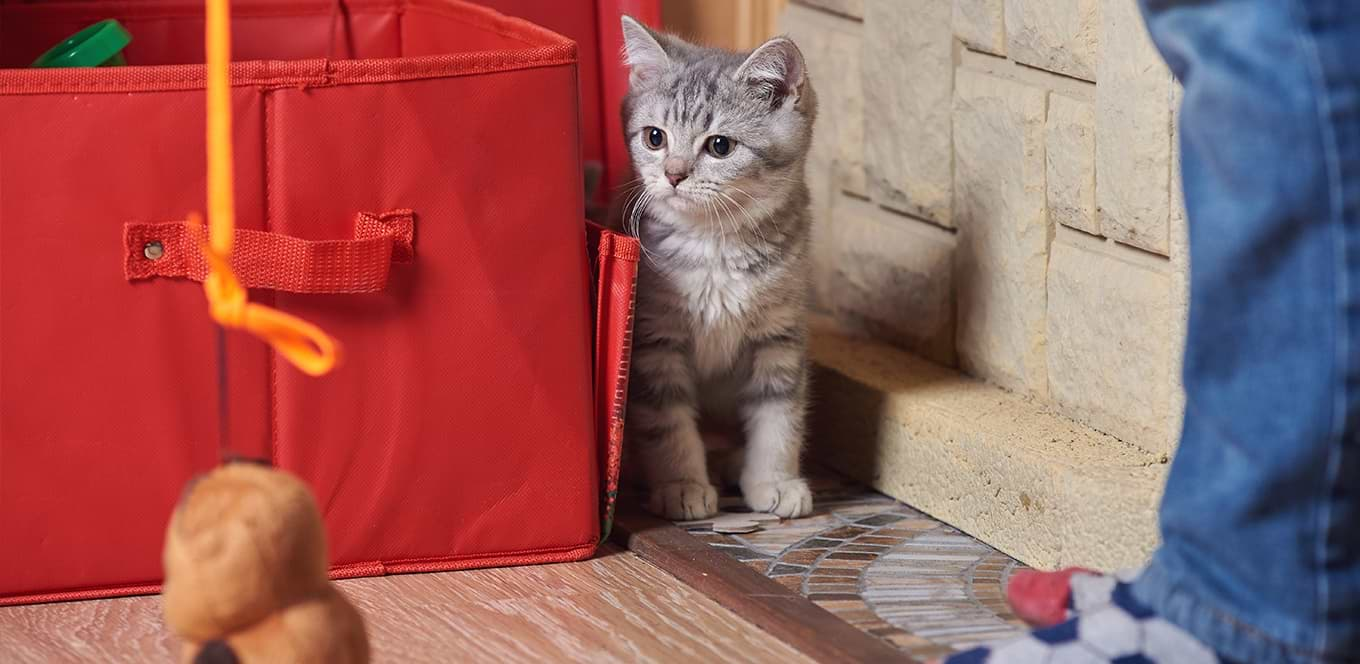

Cats are known to be finicky and picky about a lot of things. Their pickiness in terms of toys and activities is fine and completely natural; if it extends to their eating, things could get a little concerning. If your cat is a picky eater, you can try a few remedies such as serving them different food items. If they still turn away from the food served, you should consult a vet. However, before drawing any conclusions, it is necessary to understand that it is in a cat’s nature to be fussy. And while your feline friend may be stubborn initially, they tend to adapt to a set routine eventually. So, here is a brief guide to help you better understand your cat’s pickiness about food.
There are certain reasons why your cat turns from the food served. This behaviour may not necessarily indicate that your cat is a finicky eater.
If your cat is refusing to eat food served to them, it is possible that they are not hungry. Some possible reasons for this could be that they have been munching throughout the day and have had a lot of treats. If your cat does roam around outdoors by themselves, it is entirely possible that they switched to their hunting instincts and caught prey.
If you notice your cat has not eaten in more than 24 hours, it might be a sign of an underlying weakness and it is best to consult a vet in this matter.
Improper routine
Despite being finicky, cats are creatures who thrive on routine. So, when it comes to their daily feeding, it is best to establish a routine and stick to it. If your cat is not served meals at regular times, they may refuse to eat.
If you have not cleaned your cat’s serving plate before pouring in their food, they may not enjoy the meal. Cats may refuse to eat out of a soiled bowl or plate, so ensure that your pet’s serving dish is always clean.
A lot of cats tend to enjoy eating alone. They do not like consuming meals in the presence of others or being the centre of attention during meal times.
If your cat starts eating less, you may want to look for a factor that could be causing stress. Has another animal been added to the household? Has a family member left or died? Have the cat's surroundings changed, such as a move to a new house? When the stress is removed, your cat will probably go back to a normal diet. If your cat seems healthy, happy, and lively, and has a good coat and clear eyes, there is little cause for concern. Cats also have an uncanny ability to smell changes in the world around them. Even a new bowl can disturb a cat's eating habits. Some cats refuse to eat from plastic or hard rubber bowls.
Medical factors also could contribute to a change in your cat’s eating habits. The only way to verify this is to visit a veterinarian. If the medical examination does not verify that a problem exists, your cat may be manipulating you in grand style!
If your cat is a picky eater and it’s tough to get them to finish a meal, here are some tips you could try:
Heat wet food before serving
Cats have a strong sense of smell and enjoy food by its aroma. If the wet food you served them has gone cold, it may not give off the aroma that cats love. So, heating the meal a little may help.
Clean the serving dish/bowl
Since cats have a strong sense of smell, they will know if their serving bowl is unclean. If so, it can quickly kill their appetite and they may turn away from the food. So, ensure that you always serve meals to your cat in a clean dish/bowl.
Add chicken broth/tuna water/cat oil to their food
Try to entice your cat to eat food by adding a little amount of warm chicken broth, tuna water, or cat oil to the meal. This will significantly improve the smell of the food for the cats. However, do be sure to never serve anything containing onions, chives, or garlic, as these ingredients can be harmful to a cat.
Try different foods
If your cat is still refusing to eat, it may be time to change the food. You may have to try a different product and hope your pet likes the new one.
If despite trying everything your cat still won’t eat, it is time to consult your vet. Also, if your cat has gone more than 24 hours without eating anything, you should visit the vet immediately as your pet could be ill.
If your cat is set on a routine that needs to be changed, make the change slowly and gradually. Your cat may not like a sudden switch in things and can continue to refuse to eat. If you wish to switch your fur baby over to different food, start off by mixing a little quantity of the new food with their current food, over the span of a few days. Gradually, increase the quantity of the new food item until it is the only thing being served.
Switching to a new cat food can be tough. IAMS™ recognises that caring cat owners want to have the option of feeding their pet a more varied diet. IAMS cat foods offer a number of nutritional choices for your cat, including dry and canned foods, naturally preserved diets, and options for overweight cats or cats with reduced activity levels. All IAMS™ cat foods are complete and balanced for specific lifestyles and life stages. Consult your veterinarian or a Pet Professional at The IAMS Company to discuss the best selection for your cat.
Here are some more things you need to keep in mind as a cat parent.
Make sure that your cat has a quiet, comfortable place to eat.
And remember, your cat needs to visit the veterinarian regularly. Regular visits help keep your cat happy and healthy!


Kittens are curious, energetic fluffballs with boundless energy. A safe, enriching environment can cater to your kitten’s playful side, stimulate them physically and mentally, and benefit their health and development for the rest of their life.
Keeping your kitten indoors has significant benefits because it protects them from a large number of dangers. But without all the sights, sounds and smells of nature, a kitten needs other ways to stimulate their mind and body.
To build your kitten an enriching environment, provide them with safe places for hiding and resting, like window ledges, carriers or perches. Your kitten should feel protected in their safe spots and may prefer an enclosed resting area. While kittens spend a great deal of their time sleeping, their periods of wakefulness can and should be used to stimulate psychological and physical activity.
It’s important to create stimulating places for entertainment and play, as well. Cats can benefit from spaces at different vertical levels, like cat trees and perches. A variety of scratching posts can teach your kitten appropriate scratching while nurturing their natural instincts, and protect your furniture and carpet from their sharp claws.
Many cats also benefit from social activity with other cats, especially if they were introduced to other cats early in life. Providing your kitten with another kitten or young cat as a play buddy can help meet their need for near-constant play and motion. Keep in mind that cats put a premium on managing space, so it’s important that multiple-cat homes offer a variety of places to hide, sleep and observe, using both the horizontal and vertical dimensions.
An important component to enriching your kitten’s environment is socialization and play, especially if your kitten is the only animal in the household. A kitten’s natural predator-play behavior is usually easy to stimulate with interactive toys, such as wand toys or balls to pounce on or chase.
Playing kitten games with your pet helps them develop coordination and natural hunting skills. It also can help them learn boundaries and develop a bond with their new owner. Aim for 10 to 15 minutes of structured playtime two or three times a day. One way to prevent the “nighttime crazies” is to engage in active, vigorous play before feeding your kitten at bedtime. This helps wear out the kitten before bed and mimics the natural hunting-feeding-grooming-sleeping sequence in cats.
Engaging games to play with your kitten include:
An important component to enriching your kitten’s environment is socialization and play, especially if your kitten is the only animal in the household. A kitten’s natural predator-play behavior is usually easy to stimulate with interactive toys, such as wand toys or balls to pounce on or chase.
A greater challenge is providing enrichment opportunities for kittens when a person or another pet is not present to interact with them. Puzzle toys are one option to fight kitten boredom. These toys come in a variety of designs to entertain your kitten and reward her with a treat or food, such as IAMS™ ProActive Health™ Healthy Kitten with Chicken. This offers twofold benefits, providing play and proper nutrition for supporting a kitten’s energy and playtime.
Kittens and cats will spend a great deal of time watching the outside world through windows, especially if there’s a bird feeder or butterfly garden within view. Make sure to keep at least one window blind open — especially if it looks out on an area with frequent movement and activity. There are also a number of “cat TV” videos of squirrels, birds and other nature scenes available online to keep a cat entertained.
Providing your kitten with enrichment opportunities helps prevent stress and the development of abnormal behaviors. Growing from a kitten into a cat in an enriched environment with lots of physical and psychological exercise supports the overall well-being of your pet at all stages of her life.
